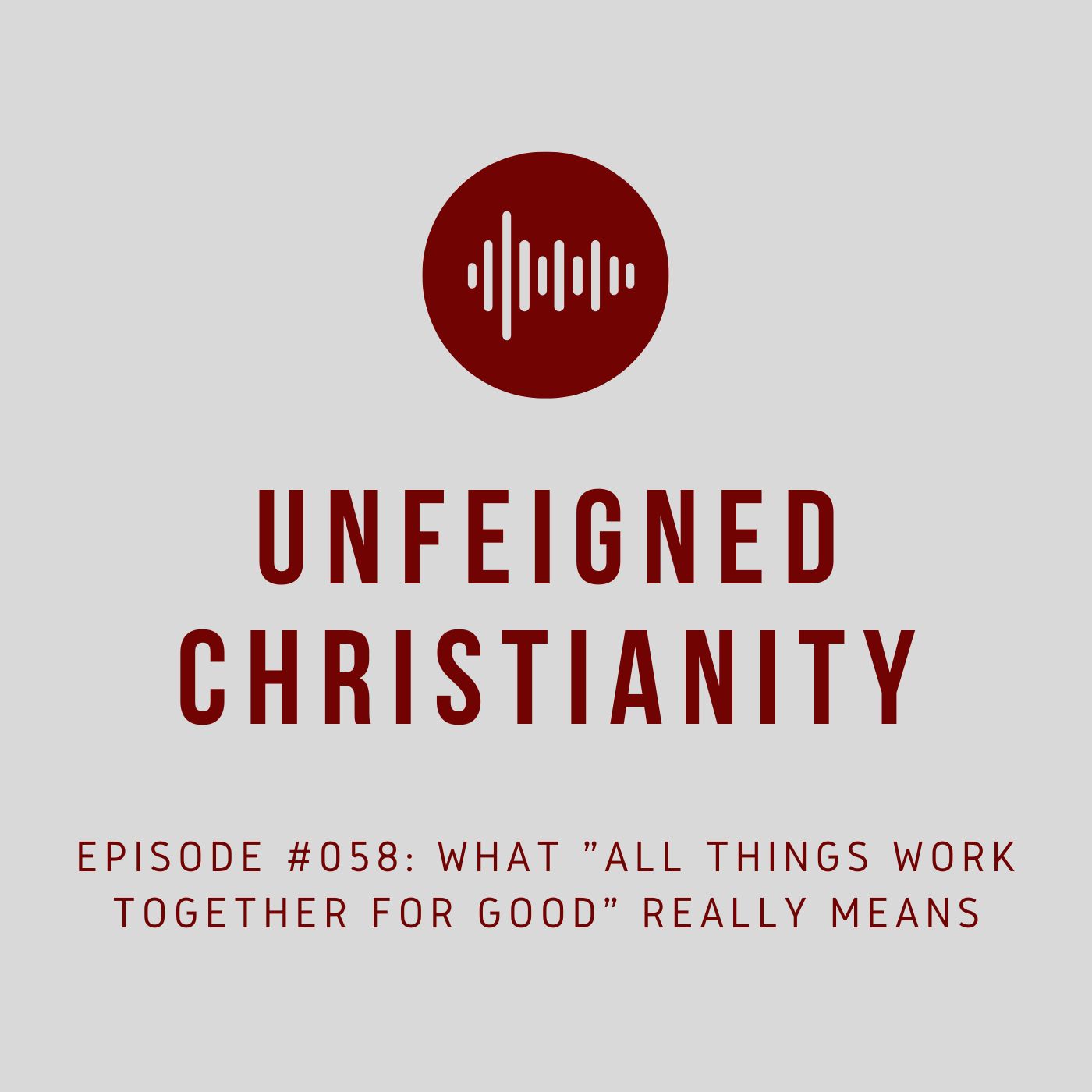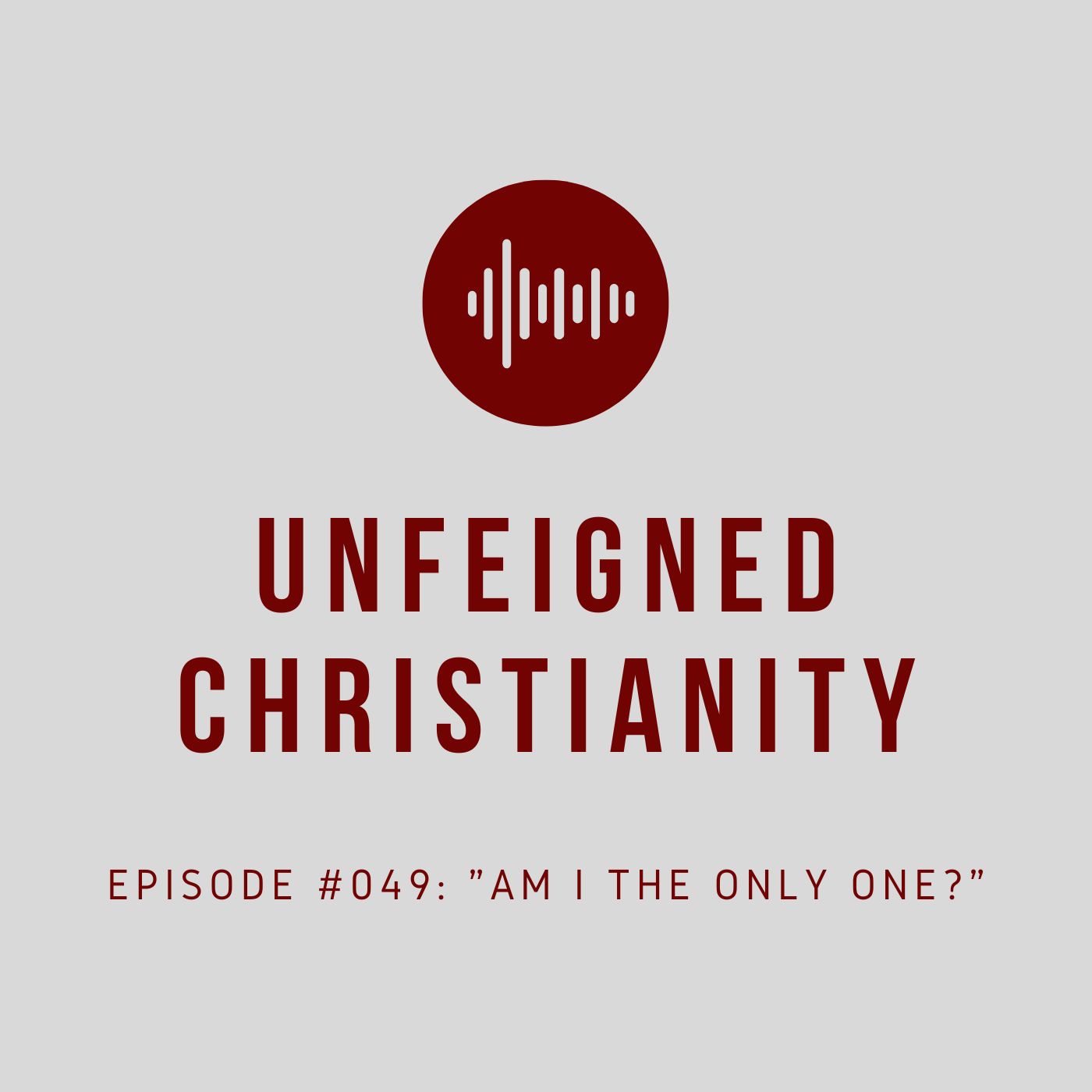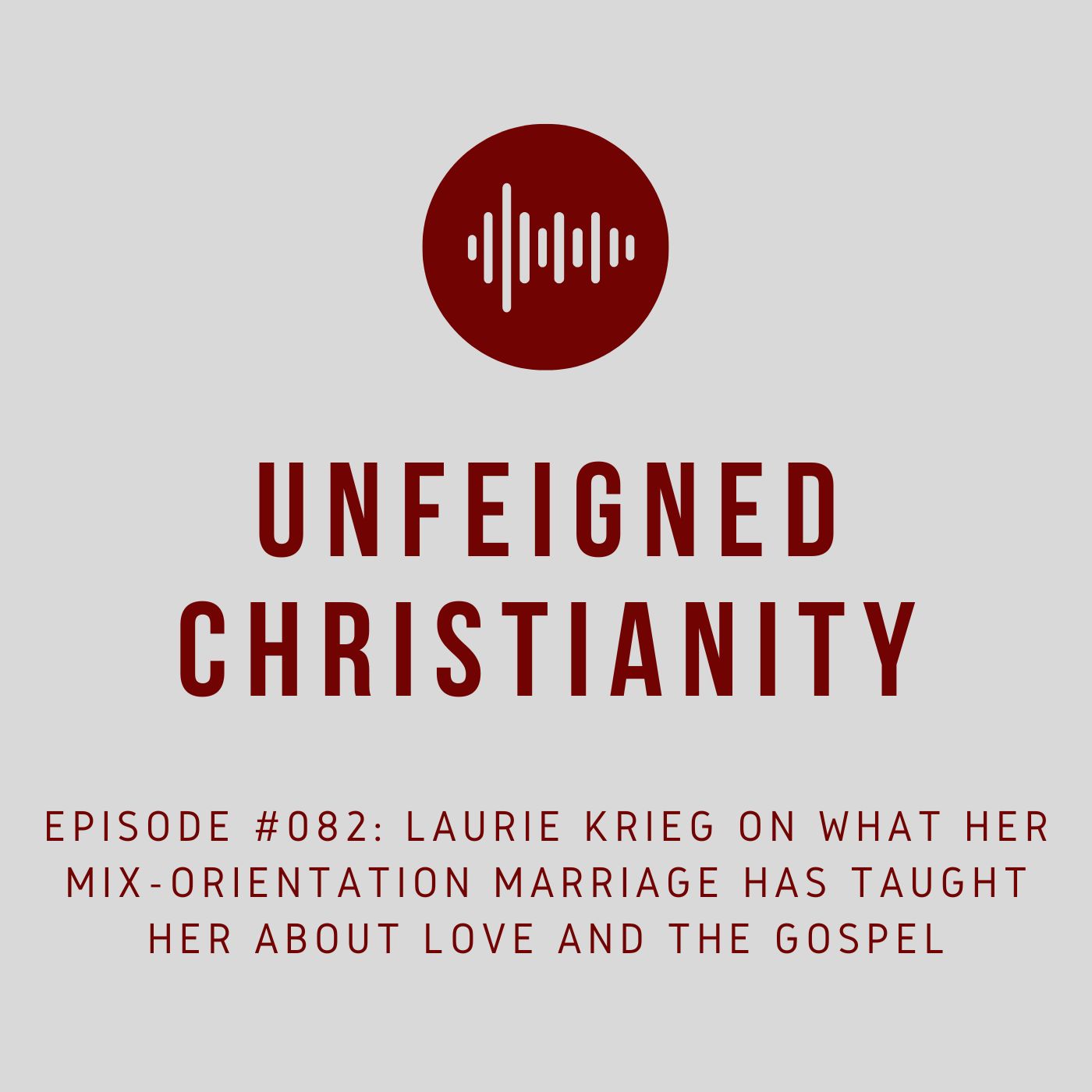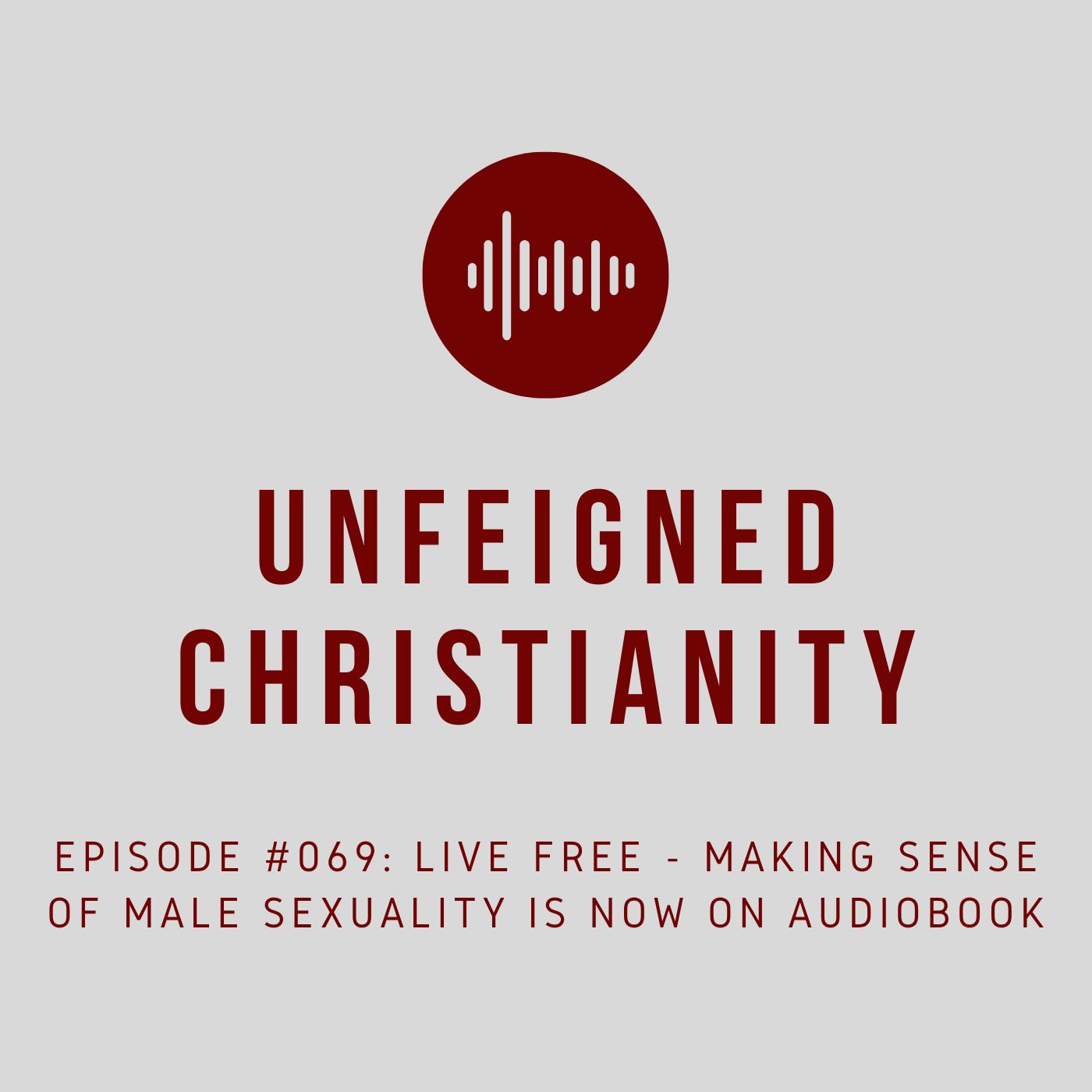Episode Transcript
Speaker 0 00:00:00 Hey friends, welcome back to Unfeigned Christianity, Asher Whitmer here, and I'm reviewing my book Live Free, Making Sense of Male Sexuality and Celebration of four Years since publishing it. Also in prep of releasing the audio version, and also just in light of the four years, how, what would I say differently? How would I say things differently? So, just before we get going too far here, I want you to know that there currently is a Black Friday sale going on right now. So if you go to, the link is below, if you're watching this on YouTube, on Facebook, or if you're listening to this on podcast, the link is in the description. But if you don't think about clicking on the link, you can go to Amazon, just look up live free by actual whi and excuse me, you will see that the Kindle version is 70% off right now.
Speaker 0 00:00:53 Normally it's a $10 Kindle book right now. You can get it for $3. The hard copy version, just like this one I have in my hand is 30, 30% off. So I think it's like $12, 12 or $13 now instead of $17. So we are in chapter 10, what all things work together for Good really means. In Chapter nine, Reckless, we ended kind of in the middle. We're walking through Roman six, seven, and eight, and we kind of ended in the middle little bit of a unfinished business. And what all things work together for good really means. Basically, the whole premise of this is that God is for us. He has, So victory is Jesus. Jesus is the victor. He makes us victorious. He's the one who's conquered sin and death. And we, we place our faith in Him, not in what we're able to do.
Speaker 0 00:01:46 And God is for us. And we, we find victory by suffering against our flesh, as Paul talks about in Romans eight. And therefore, all things work together for good. We, we can be confident, we can endure this suffering because we know that all things work together for good to those who love God. Sometimes we quote that verse, um, particularly when it's like a trial, a really hard disappointment. And yes, it's true that God is with us, and it's true that God can use what, what the devil intends for evil. He can use it for good. But in this context of what Paul is teaching, it's actually Paul is referring to suffering against the flesh and suffering against sin. And when we are willing to enter into that suffering, we know that God's gonna work that together for good, conforming us into his image. So that's kind of the premise of the whole chapter and that we like our victory is not looking at how many days do we go without sin, but clinging to the days that Jesus has gone without sin. Jesus is our victor and there is no condemnation in Christ. We are more than conquerors through him who loved us because of the work that he has done. I talk about justification and how being justified and justice righteousness, I, this is some things that I would expound on a little bit further in light of some things I've learned since. But justice and throughout scripture, you have the word justice and righteousness, and those are actually often the same word. Not always. Sometimes there's a a slightly different connotation,
Speaker 1 00:03:25 But most times justice and righteousness are the same word, just being, um, rendered differently depending on the context. And so what this means is when you are justified, you are now functioning rightly as you were designed to. And that's righteousness is living as we were designed to living rightly, morally. And so justice, to have justice in the land is when the people of the land are living rightly as God designed. And so I, I interact just briefly, just kind of at a surface level. If you've followed my work recently, you've probably seen me extrapolate on that a little bit more, but the Hebrew concept of justice in shalom peace was far more robust than our western concept of justice, where it's just getting the bad guys off the street. That's not a full picture of justice. Um, biblical justice and the Hebrew concept of justice is more restorative in that the bad guys are restored so that they're doing what they should be doing now instead of just simply being held back.
Speaker 1 00:04:29 Now they're out living as they should be. And so I interact with that concept of justice, justice and righteousness and how that impacts us, like being justified as we now are able to live just as we were designed to live and we walk in the faith, we walk in righteousness by faith in the work that Jesus has done. Now, it was really interesting reading this chapter again because I found myself critiquing it. I know that there are still some chapters later and I've, I've foreshadowed it, I've alluded to it in the, in the third part of this book, kind of maybe beginning here at the end of the second part. But, but especially when we talk about gender roles and kind of have a specific idea of what, uh, gender roles and purpose as men or women look like, the those, I know that there are some things I would say differently if I wrote the book today, but this one kind of surprised me.
Speaker 1 00:05:29 I I was kind of evaluating, critiquing my own theology as I was walking or reading through it again. And I think I alluded to it in the last review. If you watched the on a Reckless, I definitely would teach Romans, like I feel my version of it in this book is somewhat of a surface level, and I would teach it a little more robustly. But I also, I I kind of frame it as though Paul is specifically trying to agitate the pain of like, we can't do this. So that then Romans eight kind of has a, a, a landing punch. And I'm not so sure if, if that's actually a very fair interpretation of what Paul is doing in Romans six, seven, and eight. Now, just to be frank, these are passages I'm continuing to study and learn more about, but I think it's likely Paul May be referring in Roman seven, particularly referring to someone who's not walking with Christ.
Speaker 1 00:06:32 There's, there's different laws warring within him. And when we, when we surrender to Christ, we've become slaves to righteousness. And Romans eight is, is this depiction of the victory that we have in Christ and there's no condemnation to those who are in Christ. That's true. Like the, a lot of the truth that I explain in these chapters are true. Like I, I would agree with them. I, it is just like, ah, I think I would fill that out a little more fully if I were writing it again today. I also made a comment that I was like, I remember thinking through this when I wrote it. It was like, Yeah, I, I agree with this, but now four years later, I can't remember exactly why I phrased it that way. <laugh> and I make this comment that like sometimes we say Jesus, you know, Jesus is the answer for things, but, but Jesus isn't necessarily the answer for your struggle with lust.
Speaker 1 00:07:34 It may be that you need to suffer against and resist the temptation to lust. And I, I was getting that a co from a couple things I was trying to bring out this kind of amplify the point that Paul is saying, we're gonna, like conformity to Christ is being willing to suffer against our flesh. Also, I remember reading a Larry Crab book that talked about that like, sometimes we pray God to take away our lust or for deliverance from lust and, and eventually the mature man learns that deliver freedom from lust is simply resisting it daily, day in and day out. And just that daily walk to resist lust. And so that, that concept I, i still think is true. I would just maybe phrase it a little different because it came off a little more like Jesus. Yes, Jesus is the answer. I I think I would maybe nuance tease out what that means, that Jesus is the answer rather than saying Jesus isn't the answer.
Speaker 1 00:08:30 Rather it's just resisting against, because it gives the impression that then we're doing our work resisting against the flesh. And that is not at all what I was trying to communicate. What I was trying to communicate is that sometimes Jesus empowers us to resist and that's freedom. It's not that like I pray to Jesus and he delivers me. He yanks me out of this temptation and I find freedom. So there's, it's, it's interesting reading through a book that you wrote several years later and the way back then I framed things to make points. It's like, ah, I'm not sure I would do it that way now. And I can think of not just in this book, but plenty of writings that I've done that it's like, ah, I would, I would do it differently. And that's why we're doing this review is just, uh, to walk through and see, hey, where where might I need to adjust it?
Speaker 1 00:09:24 Where might it deserve some revising? Um, I would love to hear from you if you've been following along. Have you read the book? If you haven't, I encourage you to go and get it. I'm confident you will find not just freedom from lust, but just a deeper, like I've been challenged reading through it again, listening to it. I've, I've been listening to the audio version, making sure it's ready to go, but it's just challenged again. It, it just, the, the like, the secret to overcoming lust actually has very little to do with sex and sexuality. It has a lot to do with our relationship with Jesus, our identity in who God has designed us. And and I appreciate that aspect about the book, if I can say so as the author. But so yeah, I encourage you to check it out, get it if you haven't, if you have and you've read it, I would love to hear your feedback. What are your thoughts on this chapter, Chapter 10? What are your thoughts on the book? Are there, are there questions you have about it? Things you would be like, Hey, could, could this be revised? Um, yeah, we'll see you tomorrow in chapter 11, which is the F word.
Speaker 1 00:10:52 It's supposed to be a little provocative. It's the, it's forgiveness is the F word. So we'll learn more about that tomorrow.




